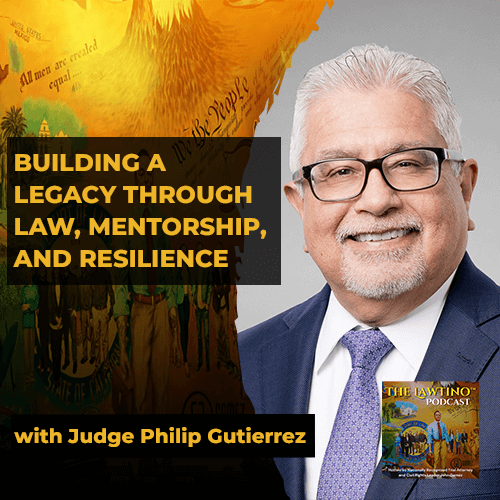The loss of a loved one is as tragic as it is life-changing. Grief can be overwhelming, and healing from your loss can take years. When the death is caused by the negligence of another person, though, that grief is accompanied by a slew of other emotions like anger and a sense of injustice. You may be left in a deep depression, and spend time pondering how much pain your loved one suffered.

It seems unjust, but even when your loved one dies due to the negligence of another person, you can still be held responsible for medical bills that result from any care given from the time of the accident until their death. Then you’ve got funeral and burial costs.
If you have lost the main breadwinner in your family, financial hardship is almost certain. If the person who died provided a significant number of essential services to the family such as childcare, transportation, and household duties, you may be required to hire someone to perform those tasks so that you can continue to work to provide for your family. The financial pain you experience, while different from your grief and anger, can feel equally sharp.
But you don’t have to collapse under the weight of these financial pressures. California law allows you to seek monetary compensation (damages) through a wrongful death lawsuit against the person responsible for your loved one’s death. You have to file your suit within two years of the date of death unless it only becomes clear that the death was caused by someone else’s negligence past that two-year deadline. This is known as the statute of limitations.
Do not miss this deadline. If you fail to file within two years, the court will throw out (dismiss) your lawsuit out of hand, and you will be left with no legal remedy, no matter how strong your claim is or how great the amount of harm you have suffered. Contact a wrongful death attorney as soon as possible, so that they can begin to formulate your claims and the legal arguments to support them.
Who Can File a California Wrongful Death Lawsuit?
Just as important as meeting the statute of limitations is ensuring that the correct person files the lawsuit. Not just anyone can sue for the wrongful death of another person. Friends, coworkers, aunts, uncles, and grandparents are legally barred from filing these suits, and any lawsuit filed by such persons will be dismissed.
Under California law, the following people have standing to file a wrongful death lawsuit:
- The deceased person’s surviving spouse
- The domestic partner of the deceased person
- The deceased person’s biological or legally adopted surviving children
In cases in which there is no surviving person in the deceased person’s line of descent, the suit can be brought by anyone who would be entitled to the deceased person’s property by intestate succession (in other words, if the person had died without a will). These people may include the deceased person’s surviving parents or siblings.
Sometimes, a deceased person may have people who were dependent on them who are not one of the individuals named above. In such cases, a California wrongful death lawsuit may be brought by certain people, limited to:
- The deceased person’s putative spouse (a person who lived as the spouse of the deceased person, but was not a legal spouse or domestic partner)
- The putative spouse’s children
- The parents of the deceased person.
Wrongful Death Is Separate From Criminal Proceedings
It is important to note that a wrongful death lawsuit is a civil matter and is completely unrelated to any result in a criminal case against the person responsible for your loved one’s death. In civil cases, the burden of proof is substantially lower than that in a criminal proceeding. The person bringing the suit only has to prove that the defendant more likely than not caused the death.
Contrast that with the burden the state has in a criminal case of “beyond a reasonable doubt,” or near certainty, which is the highest legal burden in the American legal system. So even if the responsible person is charged, tried, and acquitted of a crime relating to the death, you can still file a civil lawsuit to recover the monetary and other damages you have suffered as a result of their negligence. A court can acquit a person for criminal murder, but that same person can lose a lawsuit for wrongful death.
In addition, that the person was never charged with a crime at all is irrelevant to your ability to seek damages in a civil lawsuit.
Causes of Wrongful Death
The causes of wrongful death are nearly innumerable, so if you do not see your specific situation listed below, it is still a good idea to contact a wrongful death attorney as soon as possible if you suspect that someone was responsible for the death.
The most common causes of wrongful death include:
- Vehicle accidents – Deaths from car accidents are the most common situation in which family members file wrongful death lawsuits. They may stem from the other driver driving while intoxicated from alcohol or drugs, drowsy driving, distracted driving (texting or using the Internet while driving), driving in a reckless or aggressive manner, or if the other driver failed to properly maintain their vehicle. The other driver will almost always be a defendant in the lawsuit, but in certain circumstances, it may also be possible to bring a suit instead of or in addition to the driver against the manufacturer of the vehicle, the company who owns the vehicle the driver was operating, the driver’s employer if they were on the job at the time of the accident, a government entity that failed to properly maintain the roads in a safe condition, or a third party who created a dangerous condition on the road.
- Premises accidents – Owners and occupiers of buildings, land, and other property onto which other people venture have a legal duty to maintain the property in such a way as to create a safe environment. Common premises accidents include slips and falls, exposure to toxins, drowning in an unprotected swimming pool, being the victim of a crime while on the property, bites or attacks from animals known to be dangerous, and falling objects.
- Medical malpractice – Medical professionals are legally bound to provide care that is consistent with practitioners of the same specialty. While they are not required to be perfect, they are expected to act in a reasonable and non-negligent manner. Negligence in medical care includes such things as surgical errors, failure to diagnose or provide adequate treatment, mixing up medical charts, facilities allowing doctors without sufficient experience to perform procedures, dangerous prescription errors, leaving a foreign object inside of a patient, performing procedures without prior consent to the procedure, failure to provide sufficient follow up care, mistakes made during pregnancy (including labor and delivery), and nursing home abuse. Although these are the most common types of medical malpractice, any act by a medical professional which constitutes an error that causes the death of a patient may be the basis for a wrongful death lawsuit.
- On-the-job deaths – Employers who fail to maintain safe working conditions for their employees by not providing appropriate safety equipment, allowing exposure to toxins, not warning of the possibility of falling objects, chemical spills, electrical or chemical burns, assault by co-workers, fire or explosion, or providing inadequate security which allows an employee to become the victim of a crime, can be sued by a deceased person’s family in a wrongful death claim.
- Assault, battery, murder, or manslaughter – Although these acts are also criminal offenses, it is still possible for them to be the basis of a wrongful death suit.
Types of Damages in Wrongful Death Lawsuits
The type and amount of damages to which you may be entitled vary by case and heavily depend on the facts of your circumstances. Generally, though, there are two types of damages family members may be awarded in a wrongful death lawsuit—economic and non-economic.
Keep in mind that under California law, damages can be awarded for the shorter of either the deceased person’s life expectancy at the time of death, or the life expectancy of the family member who brings the suit at the time of death. Life expectancy is a question of fact for a jury to decide if the lawsuit is not settled out of court. Factors to consider are lifestyle, occupation, and health at the time of death. Expert witnesses may testify at trial and give their opinion on the life expectancy of either person.
Economic Damages
These damages are, in theory anyway, easily calculable and have a definite monetary amount associated with them. They may include such things as financial support that the deceased family member could contribute to the family during his or her remaining lifetime, funeral and burial expenses, the reasonable value of household services that would have been provided by the deceased person, and the loss of gifts, benefits, or inheritance the deceased person’s heirs could reasonably have expected from the deceased person.
Economic damages must be verifiable, so it is important to carefully document them. Be sure to keep all bills you receive from medical professionals and receipts for any purchases you have to make. Also important are invoices from people who have provided services and documentation regarding the value of the deceased person’s estate.
Non-Economic Damages
As opposed to economic damages, which seek to compensate families for tangible and calculable damages suffered as a result of the deceased’s death, non-economic damages are intended to provide compensation for those damages which are intangible and do not come with a fixed price tag. They may consist of the loss of the deceased person’s training and guidance, sexual relations, society and companionship, protection, affection, and moral support. They do not include damages for the surviving family member’s grief, sorrow, or pain and suffering.
California’s wrongful death statute establishes no fixed standard for determining, or an upper limit, for the amount of non-economic damages that a plaintiff should recover. Instead, a jury is permitted to award an amount that jurors deem reasonable based on the evidence presented at trial.
A California Wrongful Death Attorney Can Help
It is wise to contact a wrongful death attorney as soon as possible after the death of your loved one. The two-year statute of limitations can quickly pass by as you do the work to recover from and deal with your grief, but you do not want to miss out on receiving the compensation you deserve and the justice to which you are entitled.
California law greatly protects surviving family members of those lost due to the negligent or intentional acts of another party. While financial compensation can never bring back a loved one, it can, however, place you and your family in a better position to recover from the loss, help ensure a more promising future, and as much of a return to normalcy as possible. In addition, wrongful death laws allow us to hold accountable those who cause harm through malicious or reckless acts.
Remember, you don’t need to process your grief alone. A compassionate, trusted attorney can help you and your family understand the best path forward, and serve as an advocate through every step of the claims process.







